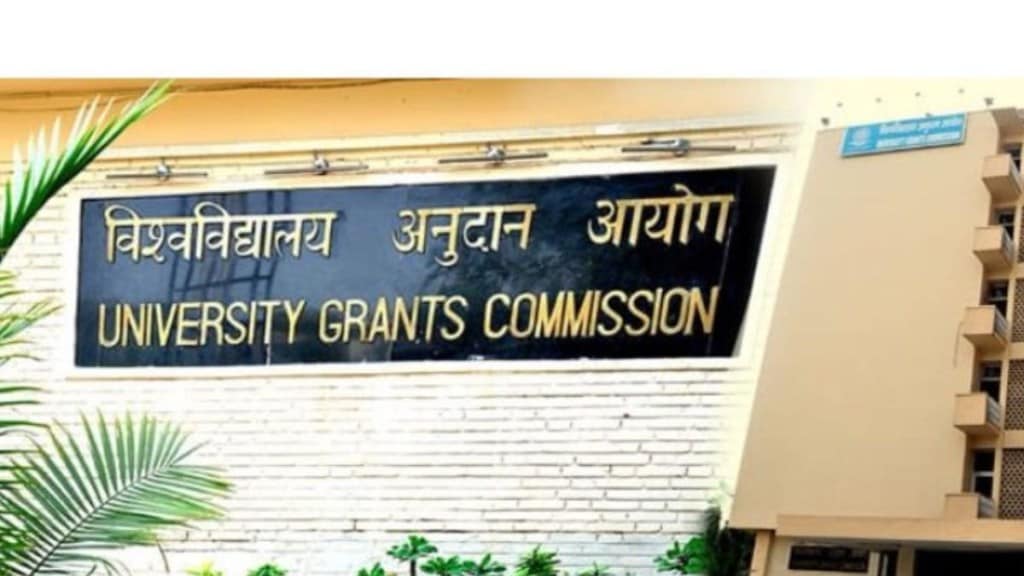As the University Grant Commission (UGC) introduced the new guidelines, called ‘UGC (Fitness of Colleges for Receiving Grants) Rules, 2024’, for Higher Education Institutions (HEIs), replacing the guidelines of 1975, it seems to have imposed new conditions on HIEs to get recognised and to receive government funding. The draft mentions the conditions necessary for government funding, which include accreditation from the National Assessment and Accreditation Council (NAAC), participation in the National Institutional Ranking Framework (NIRF), and fulfilment of up to 75% of sanctioned teaching positions, among other conditions. “These mandatory conditions imposed by the government across various aspects of life, including education, contradict the professed ideals of the National Education Policy. The policy claims to advocate for autonomy, yet it seems the government is intruding into every facet, including the establishment of institutions providing education. I find it challenging to agree with the government’s approach of linking institutional support to strict directives,” Apoorvanand, author and professor, Hindi Department, University of Delhi, told FE Education.
Experts further pointed out that unless institutions adhere to specific regulations, they risk losing essential rights or protections. This approach seems to eliminate certain grading systems but has introduced alternative categories.
However, a certain section of stakeholders are believed to remain optimistic about the new guidelines issued by the UGC and think that it can help to improve the overall performance of the institutions. “By accrediting institutions, we create a standardised approach to monitoring progress, identifying challenges and facilitating corrective measures where needed. Those who are already under best practices and showing outputs can become the benchmark. Moreover, the accreditation process is not merely about inspection but also about fostering an environment of continuous improvement. This proactive approach encourages a culture of self-assessment, leading to ongoing enhancements in educational delivery,” Sahil Aggarwaal, co-founder and CEO, Rishihood University, expressed.
The UGC claims that the draft guidelines have been prepared in line with the National Education Policy (NEP) 2020,. However, UGC didn’t highlight what kind of lacunas were present in the previous guidelines. “It is not about lacunas. It is an effort to update the regulations and processes. It is driven by the change happening or going to happen in the Indian educational landscape. When, after a gap of 38 years, a new policy opens avenues for a more personalised and inclusive educational experience then it becomes imperative to modify the implementation and assessment processes. The provisions mentioned in NEP, be it dual degree, engaging practitioners, multiple entry and exit, industry collaboration and setting up multi-disciplinary institutions that all need a new accreditation process,” Gunjan Rajput, deputy registrar, Rishihood University, said.
Surprisingly, the commission has suggested strengthening the fee regulation, emphasising that the fees levied by the college on students should strictly adhere to the amount prescribed by the relevant authority at the central, state, university or college level. Additionally, compliance with the prevailing laws is deemed essential in determining the permissible fees. In this regard, experts opined that it is not the job of the UGC to decide the fee structure for colleges, as every field and course has different requirements and expenses at different levels. “The role of the UGC in determining college fees is a complicated matter. While it is important to make education affordable and accessible, setting the same fee criteria for all colleges may not be fair or practical. Each college has different needs and costs that it operates under. Instead of enforcing strict fee regulations, the UGC should prioritise transparency, accountability, and affordability through oversight mechanisms and financial aid programmes,” Aditya Patil, founder and CEO, Ascend International School, Mumbai, said.
Moreover, experts seem to carry the view that this standardised approach by the UGC towards higher education institutions can undermine the autonomy of the colleges. “In essence, this centralised approach by the UGC, attempting to standardise fees for courses across different locations, is concerning. It undermines the principle of autonomy, wherein institutions should have the authority to make decisions that best suit their unique circumstances and needs,” Apoorvanand added.
Furthermore, experts suggest that the government should consult with the representatives from the private institutions as the people, with experience in running government institutions, may not understand the overall requirements and challenges of the private institutions. “While many can persuasively argue that there is a need for a fee fixation committee, that committee does not have representatives of private institutions. Their presence on such committees is important to reflect the perspectives of private institutions. An exclusive government-nominated body, with those having expertise in running government institutions, may not be able to understand the aspirations and challenges of private institutions. There also needs to be a bottom-up approach on fee fixation rather than a top-down strategy,”Sandeep Shastri, director academics, NITTE Education Trust, suggested.

